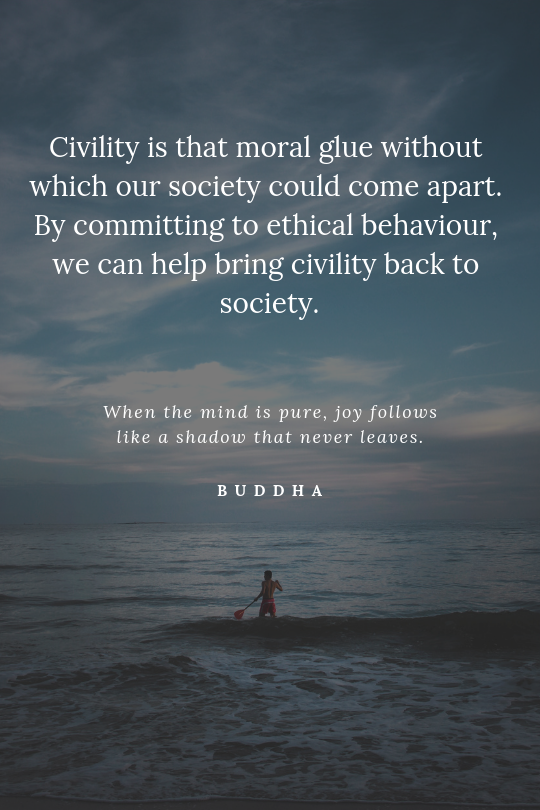
What Makes it More Difficult to Act Ethically?
Many behaviours make it difficult to act ethically including pursuing one’s own interests while harming others, narcissistic behaviour, and a lack of compassion and empathy for others. I examine in this blog three challenges to ethical behaviour in our personal relationships, workplace interactions, and online. Each one depends on having “Good Will” as the foundation for ethical behaviour.
Lack of Good Will
The well-known modern philosopher Immanuel Kant said: “Nothing can possibly be conceived in the world, or even out of it, which can be called good without qualification, except a Good Will.” In order for something to be good “without qualification,” it must not be merely “good” as a means to an end but “bad” as a means to some other end. Kant’s point is that to be universally and absolutely good, something must be good in every instance of its occurrence.
Kant argued that the goodwill freely chooses to do its moral duty. That duty, in turn, is motivated solely by reason. Because the dictates of reason allow for no exceptions, moral duty is absolute.
To have Good Will means to be motivated to do the right thing out of a sense of moral duty. Doing the right thing adds meaning to our lives because it provides an inner sense of having treated others humanely, not using them for our own desires, and respecting them and allowing them the freedom to act as they will.
So, a person who lacks Good Will does not act out of moral duty but self-interest to a greater degree. This makes it difficult to build close relationships, grow as an individual, and self-actualise.
Ethical Blind Spots
Research shows that unethical behaviour often occurs because individuals do not recognize that certain actions are unethical. This research has proposed that individuals are boundedly ethical, which means they do not always recognize the ethical dimensions of their decisions because they are subject to ethical blind spots. Blind spots
A blind spot is an unknown obstacle that prevents us from seeing our unethical behaviour. It doesn’t allow us to see the gap between who we think we are, who we’d like to be, and who we truly are.
Incivility
Incivility creates barriers to ethical behaviour. Incivility in society, in general, seems to promote personal attacks on the character, motive, or other attributes of the person making an argument rather than the substance of that argument. It seems as though the increased frequency of such attacks is due, in part, to incivility online where anonymous comments can be offensive. Some people take their cue from such behaviours and others depicted in the media almost on a daily basis, and they, themselves become uncivil.
The inappropriateness of some behaviours and online comments can cause distress thereby affecting our well-being.
Here are a few behaviours that are uncivil.
Taking opposing views to engage us in a debate.
Making the discussion all about them – all the time.
Making infuriating comments designed to provoke us to respond.
Getting the last word in so you can never end the discussion by making a good point.
Many of these behaviours are of a passive-aggressive person. The best way to deal with them and avoid further uncivil acts is not to overact, get drawn into their game or to try changing their thoughts or behaviours.
Rationalisations
Rationalising unethical behaviour is quite common. Statements like everyone lies promotes lying because the actor assumes its acceptable behaviour.
Some people rationalize unethical behaviour in the workplace, such as going along with falsified financial statements because they are told it’s a one-time request. It rarely works that way because once you agree to go along, your employer figures they “gotcha” and subsequent requests will be met by acceptance of the unethical behaviour to cover your tracks. The key is not to take the first step down the ethical slippery slope because once you do it becomes more difficult to reverse course and reclaim the moral high road.
Concluding Comments
Being an ethical person requires developing characteristic traits of behaviour that are admirable. Being ethical doesn’t come naturally to everyone but can be nourished by practising ethical behaviour. It’s a skill and like any other skill must be repeated in all aspects of life. Aristotle said, “if you want to be courageous practice courage.” Similarly, if you want to be kind practice acts of kindness. If you want to be respected, respect others. These are the keys to becoming a more ethical person.